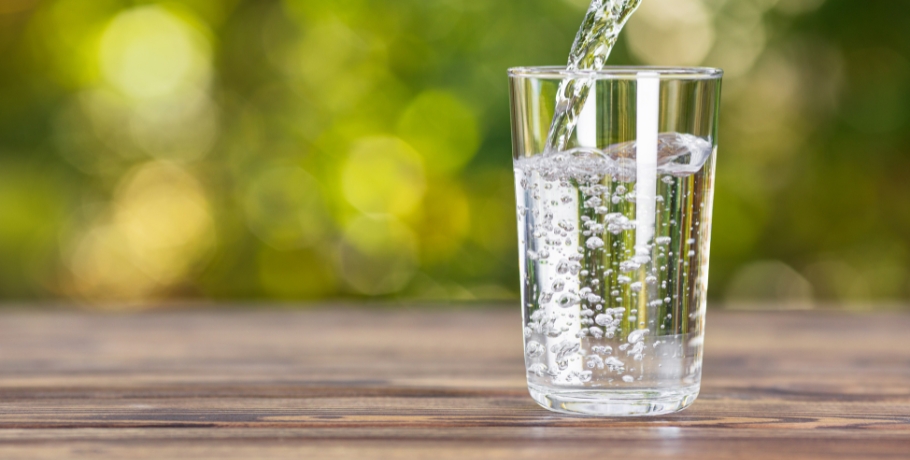
Fluid balance is crucial for maintaining the body's homeostasis. It plays a vital role in regulating body temperature, transporting nutrients, and removing waste products.
The Function of Fluid Balance
Fluid balance refers to the equilibrium between fluid intake and fluid loss in the body. It is essential for all cells and organs in the body to function properly.
Dehydration
Dehydration occurs when the body loses more fluid than it takes in. This can lead to serious health issues, such as kidney stones, urinary tract infections, and in extreme cases, organ failure.
Overhydration
Overhydration, or water intoxication, happens when the body takes in more fluid than it can handle. This can cause sodium levels in the blood to drop dangerously low, potentially leading to headaches, confusion, and in severe cases, seizures or coma.
Restoring Fluid Balance
Restoring fluid balance after dehydration or overhydration involves gradually replenishing the body with the right amount of fluids and electrolytes.
Does it matter what you drink?
Yes, the type of drink affects fluid balance and how well the body can utilize the fluid.
Water
Water is the best and most natural source of hydration. It is calorie-free and essential for most bodily functions. Water should be complemented with electrolytes.
Coffee
Coffee contains caffeine, which has a mild diuretic effect. Despite this, it still contributes to overall fluid intake. We recommend limiting coffee consumption or keeping it moderate.
Soft Drinks
Soft drinks are often high in sugar and calories and are not as effective in promoting fluid balance as water or other healthier options. Soft drinks are not recommended for a healthy lifestyle.
Fluid Balance and Electrolytes
Electrolytes such as sodium, potassium, and magnesium are essential for maintaining proper fluid balance and should be included in drinks consumed during intense physical activity or dehydration.
How do you know if you’re getting enough fluids?
There are several ways to determine if you’re adequately hydrated.
Signs of Dehydration
Common signs include dark urine, thirst, dry mouth, and fatigue.
Regulation of Fluid Levels
The body regulates fluid levels by adjusting kidney function and the release of hormones such as vasopressin.
Body Weight and Fluid Needs
Body weight can indicate fluid needs, as larger bodies generally require more fluids.
Salt
Salt helps the body retain fluids and is vital for maintaining blood pressure and fluid balance.
Minerals
Minerals like calcium, potassium, and magnesium are important for the body’s electrolyte balance and fluid regulation.
Body Weight and Fluid Needs
Calculating Fluid Needs
Fluid needs can be calculated based on body weight, activity level, and environmental temperature. A general guideline is to drink 30-35 ml of water per kg of body weight per day, but listening to your thirst is often the best approach.
Factors Affecting Fluid Needs
Factors such as physical activity, climate, and health status can influence how much fluid you need.
Recommendations for Different Age Groups
Fluid needs vary with age. Children, the elderly, and pregnant women may have specific needs that require extra attention.
Can you drink too much?
Symptoms of Overhydration
Overhydration can cause symptoms like headaches, nausea, and swelling. In severe cases, it can lead to hyponatremia.
Risks of Excessive Fluid Intake
Drinking too much can dilute the electrolytes in the blood, which can be dangerous and lead to water intoxication.
Recommended Amounts
It’s important to drink enough but not excessively. General recommendations are around 2–3 liters per day, but this may vary depending on individual needs. Always listen to your thirst.
Why must fluids contain electrolytes for cells to absorb them?
Osmosis and Fluid Balance
Osmosis is the process by which fluid moves through a semipermeable membrane (e.g., cell membranes) from an area of low solute concentration to an area of high solute concentration. This helps balance concentrations on both sides of the membrane.
The Role of Electrolytes
Electrolytes are minerals found in bodily fluids that carry an electric charge. Common electrolytes include sodium, potassium, calcium, magnesium, chloride, phosphate, and bicarbonate. These play a crucial role in many bodily functions, including:
- Nerve Signaling: Electrolytes are essential for generating and transmitting electrical signals in the nervous system.
- Muscle Contraction: Electrolytes like calcium, sodium, and potassium are necessary for muscles to contract and relax.
- Regulating Fluid Balance: Electrolytes help balance fluid levels inside and outside cells through osmosis.
The key electrolytes are sodium, chloride, magnesium, and potassium. All of these are balanced in Electrolytes Plus+.
Fluid Absorption in Cells
For the body’s cells to absorb fluids effectively, the fluids need to have a balance of electrolytes. This is because electrolytes create an osmotic gradient, which allows fluids to move into the cells. Without sufficient electrolytes, fluids would not move properly across cell membranes, potentially leading to issues like dehydration or edema (excess fluid in the tissues).
Practical Application
When you sweat, you lose not only water but also electrolytes like sodium and potassium. Simply drinking plain water can dilute the electrolytes in your blood, leading to an imbalance. This is why sports drinks often contain electrolytes – they help replenish both fluids and electrolytes, enabling effective hydration and maintaining the body’s functions. Unfortunately, most sports drinks also contain sweeteners, sugar, and other unhealthy ingredients. Electrolytes Plus+ is the best electrolyte blend we’ve come across. It is free from dairy, gluten, GMOs, magnesium stearate, sugar, artificial sweeteners, fillers, and heavy metals.
